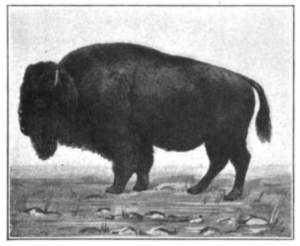To Conserve Man
 To our Rachel Carson-tuned ears, the word conservation means allowing nature to hold sway, to designate areas as wetlands, protected habitats and forever wild, to be humble and accept that nature is usually smarter than we are. But to biology textbook authors in the 1920s, 30s and 40s, influenced by the eugenic ideas of Henry Fairfield Osborn, Madison Grant, Theodore Roosevelt and others, conservation meant something else entirely. It meant first, preserving select symbols of American virility, like the redwood tree, the bison, and most importantly, their own “great race,” and second, managing the rest of nature – forests, water resources, wildlife, and soil – so that it could be exploited maximally without collapse.
To our Rachel Carson-tuned ears, the word conservation means allowing nature to hold sway, to designate areas as wetlands, protected habitats and forever wild, to be humble and accept that nature is usually smarter than we are. But to biology textbook authors in the 1920s, 30s and 40s, influenced by the eugenic ideas of Henry Fairfield Osborn, Madison Grant, Theodore Roosevelt and others, conservation meant something else entirely. It meant first, preserving select symbols of American virility, like the redwood tree, the bison, and most importantly, their own “great race,” and second, managing the rest of nature – forests, water resources, wildlife, and soil – so that it could be exploited maximally without collapse.
